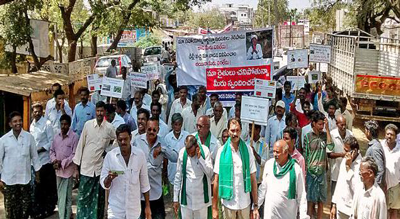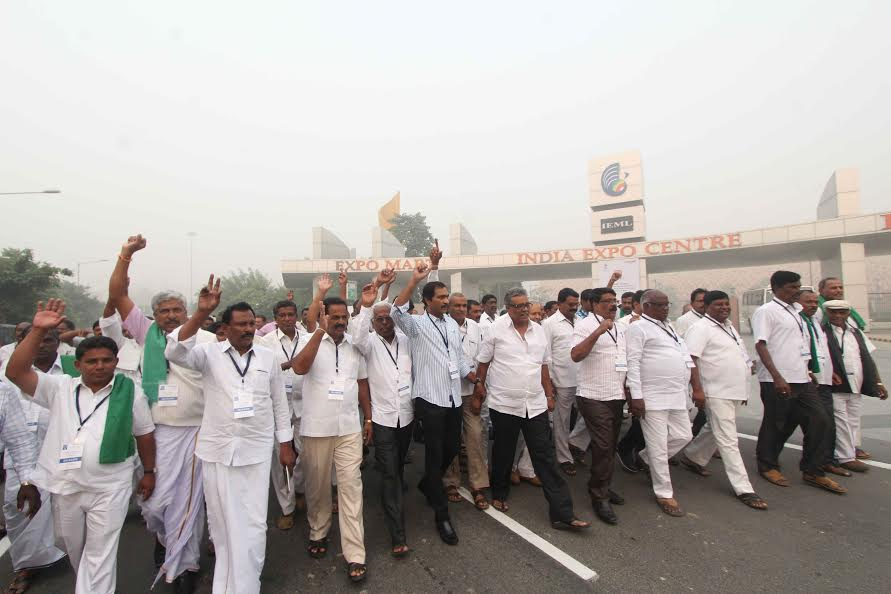Tobacco Farmers should be Allowed to Participate in COP Meetings
The FCTC decisions are made behind closed doors, with media, the public and tobacco farmers explicitly excluded from the process. This means that the views and interests of tobacco growers are not represented in the debates.
The decisions on tobacco control at COP Meetings have effect on the livelihood of millions of tobacco farmers and farm labour connected with tobacco cultivation in the country.


Farmers should be allowed to participate in the deliberations of the Conference to help farmers understand the future course of actions being proposed by the WHO on tobacco control and the impact of these measures on the tobacco crop and the livelihood of millions that are dependent on tobacco in the country. The Government of India should prevail upon the WHO to not prevent the tobacco farmers from attending the COP meetings and expressing their grievances effectively.

Farmers Protest COP7 Exclusion
Hundreds of tobacco farmers from various tobacco-growing States in India assembled outside the venue for the FCTC Seventh Conference of the Parties (COP7), held at India Expo Centre in Greater Noida, India, protesting lack of transparency in COP procedures.
Farmers from other tobacco growing nations viz., Brazil, Zimbabwe, U.S.A., Malawi, Portugal, Bulgaria etc. joined this protest against unfair denial of the farmers’ right to be heard at global tobacco control forums.
The farmers made a Delhi Declaration with the following demands:
- That the Governments provide equally remunerative alternative crop options for all tobacco growers across the globe.
- That alternative livelihood opportunities be provided not only to the affected farmers but also others involved in the legitimate tobacco trade such as farm labourers, bidi and tobacco workers, tribal tendu leaf pickers and retailers.
- That WHO FCTC meetings should be consultative, transparent, democratic and inclusive of all stakeholders.
- That all unreasonable, biased, unscientific and unsubstantiated FCTC proposals be dropped.
- That WHO FCTC fulfils its commitments to developing countries and countries with economies in transition, in accordance with its preamble and guiding principles.
- That WHO FCTC ensures a uniform level of FCTC implementation across all countries, before any additional measures are introduced.